
The majority of HIV infections are sexually transmitted or are associated with pregnancy, childbirth and breastfeeding.
Our work links prevention with treatment, care and support, reduces HIV-related stigma and discrimination, and responds to unique regional and national characteristics of the epidemic.
Articles by HIV and STIs
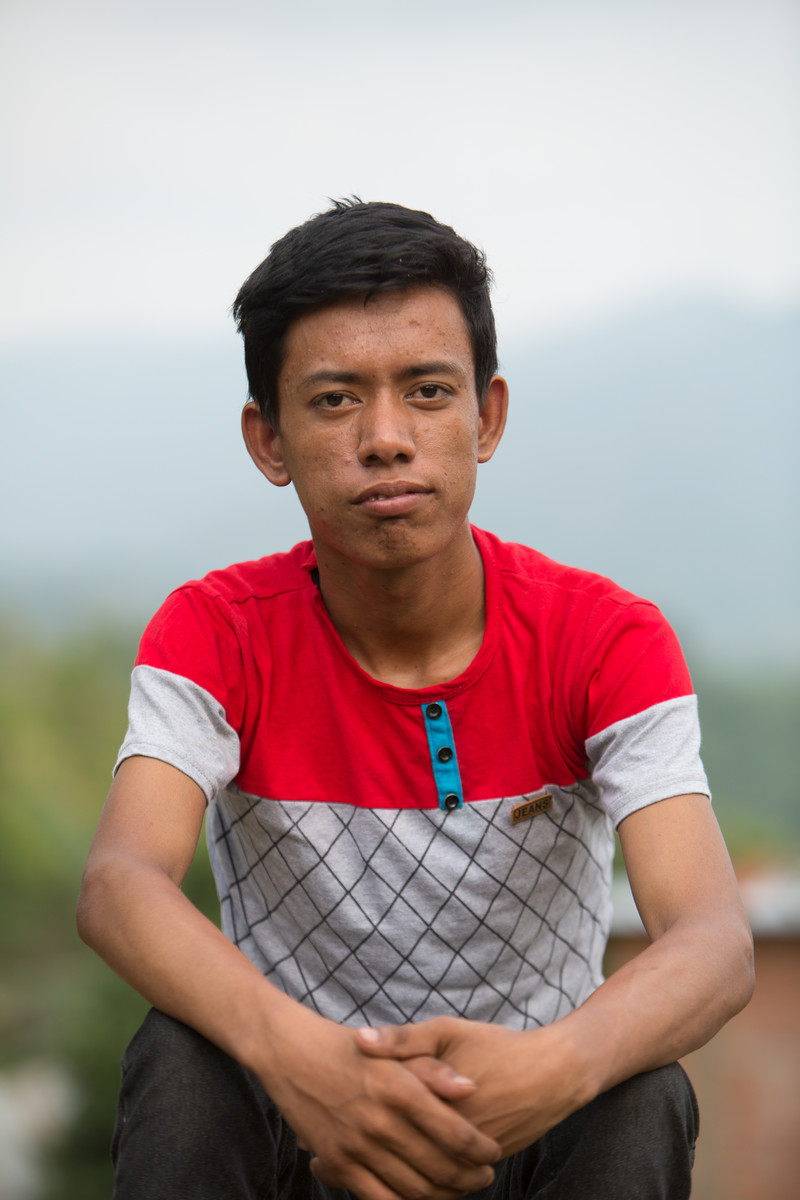
Meet the college student who uses his music to battle the stigma surrounding HIV
Milan Khadka was just ten years old when he lost both his parents to HIV. “When I lost my parents, I used to feel so alone, like I didn’t have anyone in the world,” he says. “Whenever I saw other children getting love from others, I used to feel that I also might get that kind of love if I hadn’t lost my parents.” Like thousands of Nepali children, Milan’s parents left Nepal for India in search of work. Milan grew up in India until he was ten, when his mother died of AIDS-related causes. The family then returned to Nepal, but just eight months later, his father also died, and Milan was left in the care of his grandmother. “After I lost my parents, I went for VCT [voluntary counselling and testing] to check if I had HIV in my body,” Milan says. “After I was diagnosed as HIV positive, slowly all the people in the area found out about my status and there was so much discrimination. My friends at school didn’t want to sit with me and they humiliated and bullied me,” he says. “At home, I had a separate sleeping area and sleeping materials, separate dishes and a separate comb for my hair. I had to sleep alone.” Things began to improve for Milan when he met a local woman called Lakshmi Kunwar. After discovering she was HIV-positive, Lakshmi had dedicated her life to helping people living with HIV in Palpa, working as a community home-based care mobiliser for the Family Planning Association of Nepal (FPAN) and other organisations. Struck by the plight of this small, orphaned boy, Lakshmi spoke to Milan’s family and teachers, who in turn spoke to his school mates. “After she spoke to my teachers, they started to support me,” Milan says. “And after getting information about HIV, my school friends started to like me and share things with me. And they said: ‘Milan has no one in this world, so we are the ones who must be with him. Who knows that what happened to him might not happen to us?” Lakshmi mentored him through school and college, encouraging him in his schoolwork. “Lakshmi is more than my mother,” he says. “My mother only gave birth to me but Lakshmi has looked after me all this time. Even if my mother was alive today, she might not do all the things for me that Lakshmi has done.” Milan went on to become a grade A student, regularly coming top of his class and leaving school with flying colours. Today, twenty-one-year-old Milan lives a busy and fulfilling life, juggling his college studies, his work as a community home-based care (CHBC) mobiliser for FPAN and a burgeoning music career. When not studying for a Bachelor’s of education at university in Tansen, he works as a CHBC mobiliser for FPAN, visiting villages in the area to raise awareness about how to prevent and treat HIV, and to distribute contraception. He also offers support to children living with HIV, explaining to them how he lost his parents and faced discrimination but now leads a happy and successful life. “There are 40 children in this area living with HIV,” he says. “I talk to them, collect information from them and help them get the support they need. And I tell them: ‘If I had given up at that time, I would not be like this now. So you also shouldn’t give up, and you have to live your life.” Watch Milan's story below:

Tackling HIV stigma through music
Milan Khadka once suffered discrimination within his community when they found out he was living with HIV. He is now a community home-based care mobiliser with Family Planning Association of Nepal. He uses his music to educate the youth about HIV and to confront the stigma around HIV. Read Milan's story
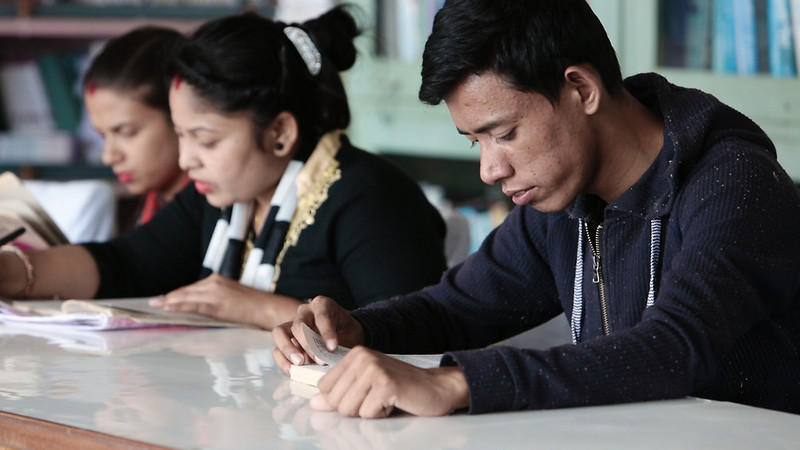
Launch of first global sexual and reproductive health service package for men and adolescent boys
Growing a moustache during the month of November has become common in many countries to raise awareness of men's health issues. Along with ‘Movember’, World Vasectomy Day (17 November) and International Men’s Day (19 November) are other awareness days in November linked to promoting men’s health, including sexual and reproductive health. Existing gender inequalities, due in large part to rigid gender norms and harmful perceptions of what it means to be a man, have far reaching consequences on health and wellbeing. Better meeting the specific and diverse needs of men and adolescent boys, as well as improving men’s own sexual and reproductive health, also improves the sexual and reproductive health of their partners, and is an effective way to promote sexual and reproductive health and rights for all. Now, for the first time ever, the International Planned Parenthood Federation (IPPF) and United Nations Population Fund (UNFPA) have released a comprehensive service package focused on men’s sexual and reproductive health. The Global Sexual and Reproductive Health Service Package for Men and Adolescent Boys has been developed to support providers of sexual and reproductive health services. Men have substantial sexual and reproductive health needs, including the need for contraception, prevention and treatment of HIV and other sexually transmitted infections, sexual dysfunction, infertility and male cancers. Yet these needs are often unfulfilled due to a combination of factors, including a lack of service availability, poor health-seeking behaviour among men, health facilities often not considered ‘male-friendly’, and a lack of agreed standards for delivering clinical and preventative services to men and adolescent boys in all their diversity. IPPF is committed to working with men and adolescent boys in all their diversity as clients, partners and agents of change. This commitment is framed within a human rights framework and outlined in IPPF policies on Men and Sexual and Reproductive Health and Gender Equality. These reflect the importance IPPF attaches to addressing men’s sexual and reproductive health and rights and promoting an approach that is truly gender transformative. Working together as a global Federation, IPPF is committed to: Continuing to provide technical support on mobilizing men and adolescent boys to transform harmful gender norms; Advocating for an enabling policy environment that ensures men’s and adolescent boys’ access to services and reduces sexual and gender based violence; Contributing to the evidence base about what works in gender transformative programming; and • Meeting the diverse sexual and reproductive health needs, including HIV, of tens of millions of men and adolescent boys in over 150 countries. I am Amina. Professional writer, coach, and writing in the niches of healthcare, beauty, relationships and education since 2009. Follow me at HomeworkHelpmate.
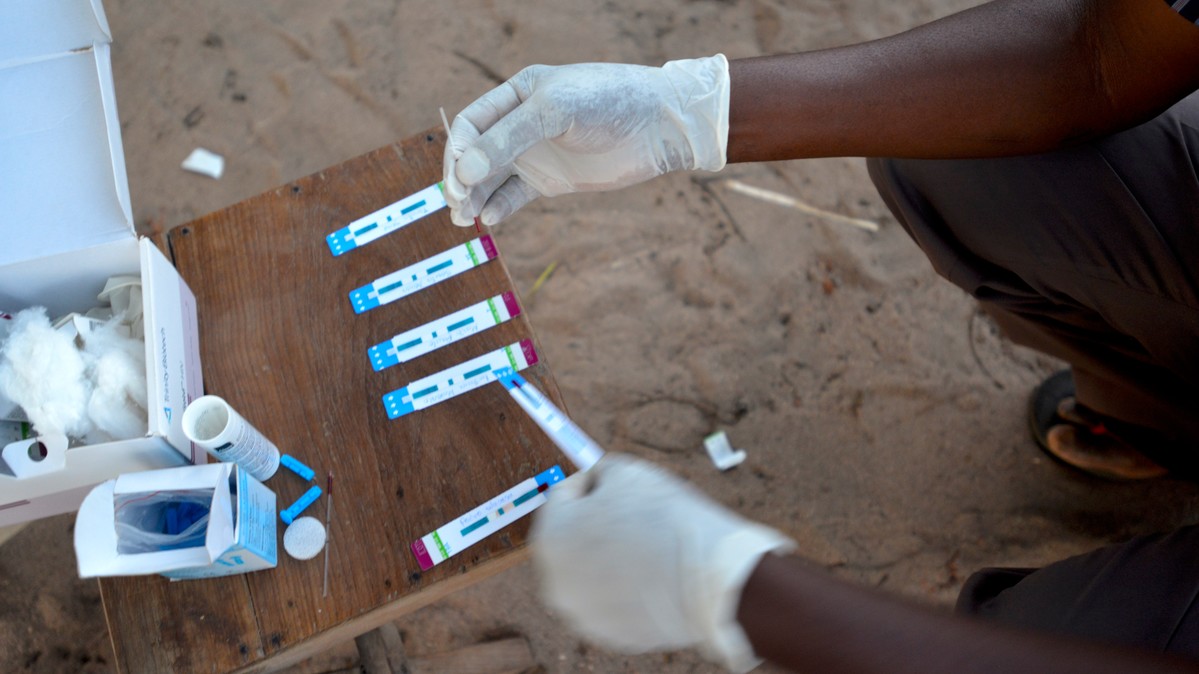
The Global Gag Rule (GGR) cuts deep into sexual and reproductive healthcare in Mozambique
“They call us ‘Muhanyisse’”, says Albertina Machaieie, a nurse working with Amodefa, the Mozambican Association for Family Development. It means saviour in the local language, Shangaan. For 19 years, Machaieie and her team of activists – volunteers who are HIV positive – have been visiting communities in the poorest suburbs of Maputo, bringing healthcare to those with HIV and raising awareness about the disease. This year they provided medical check-ups, treatment, food and counselling to more than a thousand families living with the virus. But the continuation of the home care programme and other vital health services Amodefa offers in Mozambique are under threat following the reintroduction of the Global Gag Rule. The Global Gag Rule, or Mexico City Policy as it is formally known, stops US aid to all health programmes run by organisations who perform or counsel on abortion. The decision, which will deprive Amodefa of $2 million, 60% of its budget, will have devastating consequences for the fight against HIV in Mozambique, where an estimated 12% of the country’s nearly 30 million population are living with the virus. “We estimate half million people across their HIV, tuberculosis, malaria and family planning projects will be affected,” says Santos Simione, the executive director of Amodefa. Albertina’s team of 60 volunteers has already had to be halved. She says some of her volunteers will continue to visit families, but without funds to cover transport many patients will no longer receive the treatment or counselling they need. For women like Palmira Enoque Tembe, who lives with her two sons who are also HIV positive, and four grandchildren, stopping these visits would sever a vital lifeline. Tembe says she was terrified when she found out she had HIV: “I didn’t want to do anything, just sit in my room and cry.” But the anti-retroviral therapy and counselling Amodefa provides have given her a new lease on life. She is well enough to start subsistence farming again, “and I am making plans for the future. I know now to get ill is not to die,” she says. By the end of October, 14 of Amodefa’s 20 sexual and reproductive health clinics across three provinces in southern Mozambique will also have to close. Nurses at the clinics see around 300 patients a day, mostly girls seeking family planning advice, but also people looking for testing and counselling for HIV and other STDs. “Outside of these service centres young people have little to no access to this information,” says Nalia Chambal, the head of the Tua Cena programme, which is operated through these clinics. “[With the closures] we’ll see a rise in unwanted pregnancies, early child marriage, HIV and STD transmission,” she says – which will mean more girls will drop out of school, and there will be more unsafe abortions. Amodefa works closely with the Ministry of Health to ensure the family planning services it offers, as with its HIV, tuberculosis and malaria programmes, complement and support the government’s own health services. “When we stop, there will be a huge pressure on government facilities,” says Simione. “It will tough on all the country.” But it will be the poorest and most vulnerable that will be most affected, such as those living in rural Nampula, one of Mozambique’s largest and most impoverished provinces, where Amodefa’s ChallengeTB programme is under threat. The programme, which has been running just over a year, identifies and treats patients with tuberculosis, some living more than 80 km from the nearest health centres. As the team of volunteers and staff on bicycles and motorbikes bring awareness and testing to ever-more remote communities, the true scope of the disease is beginning to be understood. In the first quarter of this year, 1,318 people were tested for TB in the eight districts where Amodefa works; in the second quarter, 2,106 were tested; and in the third quarter, the number reached 3,154. More than half of these people were diagnosed to be carrying TB. “We’ve done a lot but there’s a lot more to do,” says Maria Teresa de Fátima, head of monitoring and evaluation for the project. She expects the number of cases will continue to rise over the next two years, before they start to drop off. Particularly at risk are the roughly 2,000 patients currently taking medication. TB treatment must be taken daily for six months, and those who stop because they can no longer access healthcare may develop a multi-resistant form of the virus which is much harder to treat. Mario Vilanque, a volunteer working with communities in Naha in Morrupula district, where 5 new people have just started treatment, said his patients, are “very confident” in Amodefa; “They have seen 10 people cured – now they have great faith.” It wasn’t always this way. When Machaieie started the HIV homecare programme in Maputo, she had to hide her car and go into communities anonymously. “People feared HIV so they feared me coming to them,” she says. It has taken 19 years to change attitudes and break taboos in Mozambique. Now, just as hope is overcoming this fear, global gag rule threatens to force the work of Amodefa and the lives of its patients back into the shadows.
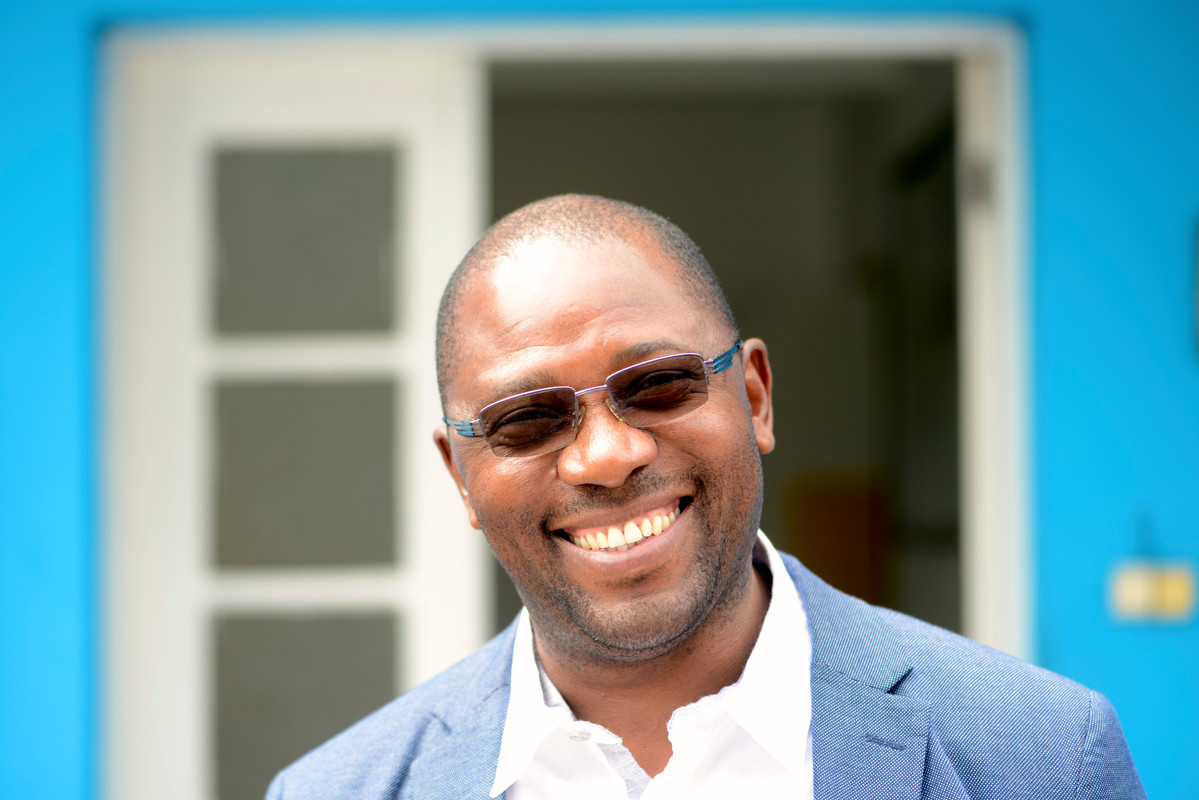
Discussing the impact of the Global Gag Rule in Mozambique
Santos Simione is the executive director of Amodefa, our associated clinic in Mozambique. He discusses the consequences of the global gag rule and what it means for sexual and reproductive healthcare in the community. What is the the financial impact on Amodefa of the US withdrawal of funds? Santos: The impact of the US withdrawal of funds, will be $2 million – 60% of our budget. How will this impact the people involved in US funded projects? Santos: People involved in US projects: 130 jobs (staff) will need to be cut – not including the activistas or peer-educators who are part of those projects. To give an examples, two weeks ago we had to close 9 clinics in Gaza Province, there were 33 staff involved and 600 activistas and peer educators at the community level. And in terms of the families you help? Santos: We estimate half million people across their HIB, TB, malaria and family planning projects will be affected. The focus is more on HIV and TB and malaria, because we never used funds from US for any programme related to abortion or prevention care. Why is it so important to Amodefa not to sign the GAG rule? Santos: It's important to us not to sign the GAG rule because it is related to human rights, it’s related to human dignity. It’s related to saving the lives of people. That’s why we won’t sign it. What was your role in helping push for the abortion law in Mozambique? Santos: Amodefa was part of a civil society coalition on this issue. Form the beginning Amodefa was involved in lobbying the government to help this law, using different stakeholders. What will be the impact of the health clinics closing, particularly on young girls and girls in school? Santos: First impact, especially on young people, is that most likely the number of unplanned pregnancies will increase. Secondly, those that seek abortion won’t have the information about which facilities to use, they will resort to unsafe abortion methods and as a consequence of that, we expect many people will die. The other angle is that, because organisations likes AMODEFA provide services across a wide spectrum from HIV to tuberculosis to malaria, and so on, they will stop doing this, there will be a big pressure on government facilities, because with our week we are also trying to complement what the government is going, so the pressure on government facilities is going to increase. In some cases we go into very rural areas, 50 km away from the health centre, and bring samples. If we stop this the most vulnerable, the poorest people will be most affected. It will tough on the whole country." IPPF refuse to sign the Global Gage Rule and will continue to provide sexual and reproductive healthcare that includes abortion and abortion related healthcare. DONATE NOW TO SUPPORT OUR WORK!

"We visit them in their real lives, because they may not have time to go to clinics to check their status"
Few people are at higher risk of HIV infection or STIs than sex workers. Although sex work is illegal in Thailand, like in so many countries many turn a blind eye. JiHye Hong is a volunteer with PPAT, the Planned Parenthood Association of Thailand, and she works with the HIV and STIs prevention team in and around Bangkok. One month into her volunteer project, she has already been out on 17 visits to women who work in high risk entertainment centres. “They can be a target group,” explains JiHye. “Some of them can’t speak Thai, and they don’t have Thai ID cards. They are young.” The HIV and STIs prevention team is part of PPAT’s Sexual and Reproductive Health department in Bangkok. It works with many partners in the city, including secondary schools and MSM (men who have sex with men) groups, as well as the owners of entertainment businesses. They go out to them on door-to-door visits. “We visit them in their real lives, because they may not have time to go to clinics to check their status,” says JiHye. “Usually we spend about an hour for educational sessions, and then we do activities together to check if they’ve understood. It’s the part we can all do together and enjoy.” The team JiHye works with takes a large picture book with them on their visits, one full of descriptions of symptoms and signs of STIs, including graphic images that show real cases of the results of HIV/AIDs and STIs. It’s a very clear way of make sure everyone understands the impact of STIs. Reaction to page titles and pictures which include “Syphilis” “Gonorrhoea” “Genital Herpes” and “Vaginal Candidiasis” are what you might expect. “They are often quite shocked, especially young people. They ask a lot of questions and share concerns,” says JiHye. The books and leaflets used by the PPAT team don’t just shock though. They also explain issues such as sexuality and sexual orientations too, to raise awareness and help those taking part in a session understand about diversity and equality. After the education sessions, tests are offered for HIV and/or Syphilis on the spot to anyone who wants one. For Thai nationals, up to two HIV tests a year are free, funded by the Thai Government. An HIV test after that is 140 Thai Baht or about four US Dollars. A test for Syphilis costs 50 Bhat. “An HIV rapid test takes less than 30 minutes to produce a result which is about 99% accurate,” says JiHye. The nurse will also take blood samples back to the lab for even more accurate testing, which takes two to three days.” At the same time, the groups are also given advice on how it use condoms correctly, with a model penis for demonstration, and small PPAT gift bags are handed out, containing condoms, a card with the phone numbers for PPATs clinics and a small carry case JiHye, who is from South Korea originally, is a graduate in public health at Tulane University, New Orleans. That inspired her to volunteer for work with PPAT. “I’ve really learned that people around the world are the same and equal, and a right to access to health services should be universal for all, regardless of ages, gender, sexual orientations, nationality, religions, and jobs.”
Global Sexual and Reproductive Health Package for Men and Adolescent Boys
The Global Sexual and Reproductive Health Service Package for Men and Adolescent Boys has been developed to support providers of sexual and reproductive health services. It aims to increase the range and quality of sexual and reproductive services provided that meet the specific and diverse needs of men and adolescents boys. It covers men and adolescent boys in all their diversity, and takes a positive approach to sexual and reproductive health, seeing this not just as the absence of disease, but the positive expression of one’s gender, sex and sexuality. Men have substantial sexual and reproductive health needs, including the need for contraception, prevention and treatment of HIV and other sexually transmitted infections (STIs), sexual dysfunction, infertility and male cancers. Yet these needs are often unfulfilled due to a combination of factors, including a lack of service availability, poor health-seeking behaviour among men, health facilities often not considered "male-friendly," and a lack of agreed standards for delivering clinical and preventative services to men and adolescent boys.
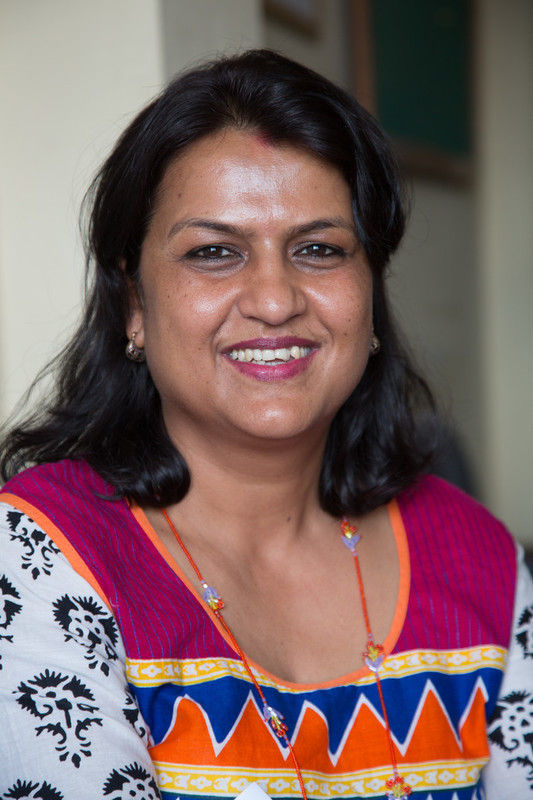
There are around 40,000 sex workers in Nepal. Around 1,300 are living with HIV.
“Family Planning Association of Nepal is playing a crucial role in protecting the rights of female sex workers in the whole of Nepal” says Jamuna Sitvla, senior programme officer at Family Planning Association of Nepal (FPAN). There are around 40,000 sex workers in Nepal. Around 1,300 are infected with HIV. FPAN is working to increase awareness among sex workers to practice safe sex and to use condoms to protect from HIV. "One challenge is that when female sex workers carry condoms, if the police find the condoms, they criminalise the women. Some of the sex workers have been organised via different organisations in order to protect their rights. Now the Supreme Court has given an a ruling that policemen have to ensure the sexual rights of female sex workers have to be addressed. This decision includes that women can carry condoms: that is their right. The second decision is that sex workers have the right to organise. Some sex workers are afraid of asking heir clients to wear condoms and this increases their risk of contracting HIV but the more confident sex workers are ensuring that their clients wear condoms". "In 2017 there was a huge conference held at FPAN, with sex workers invited as panelists. People had the opportunity to understand the problems they were facing. One of FPAN’s great successes was to invite the criminal department of police, policy makers and sex workers to come under one roof. We gathered them in the FPAN venue and they made a commitment that from now on the female sex workers will be treated with respect, with dignity, will not be criminalised." Stories Read more stories about our work with people living with HIV
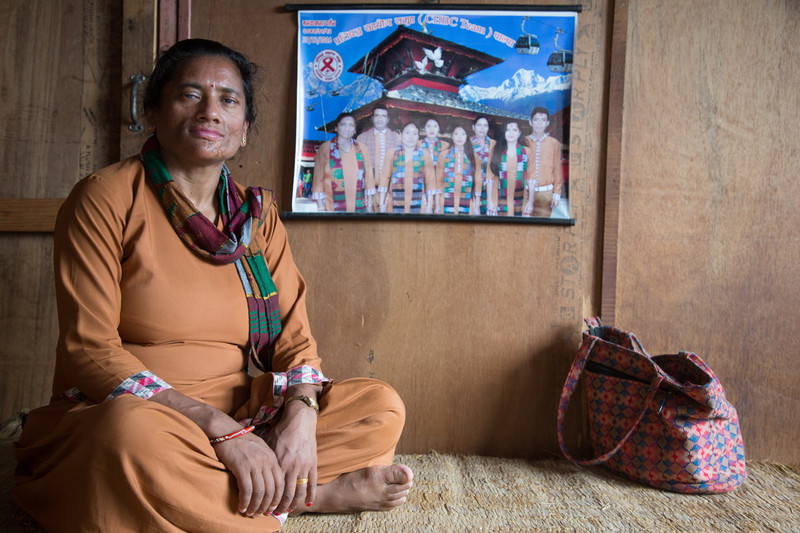
"I said to myself: I will live and I will let others living with HIV live"
Lakshmi Kunwar married young, at the age of 17. Shortly afterwards, Lakshmi’s husband, who worked as a migrant labourer in India, was diagnosed with HIV and died. “At that time, I was completely unaware of HIV,” Lakshmi says. “My husband had information that if someone is diagnosed with HIV, they will die very soon. So after he was diagnosed, he didn’t eat anything and he became very ill and after six months he died. He gave up.” Lakshmi contracted HIV too, and the early years of living with it were arduous. “It was a huge burden,” she says. “I didn’t want to eat anything so I ate very little. My weight at the time was 44 kilograms. I had different infections in my skin and allergies in her body. It was really a difficult time for me. … I was just waiting for my death. I got support from my home and in-laws but my neighbours started to discriminate against me – like they said HIV may transfer via different insects and parasites like lice.” Dedicating her life to help others Lakshmi’s life began to improve when she came across an organisation in Palpa that offered support to people living with HIV (PLHIV). “They told me that there is medicine for PLHIV which will prolong our lives,” she explains. “They took me to Kathmandu, where I got training and information on HIV and I started taking ARVs [antiretroviral drugs].” In Kathmandu Lakshmi decided that she would dedicate the rest of her life to supporting people living with HIV. “I made a plan that I would come back home [to Palpa], disclose my status and then do social work with other people living with HIV, so that they too may have hope to live. I said to myself: I will live and I will let others living with HIV live”. Stories Read more stories about our work with people living with HIV
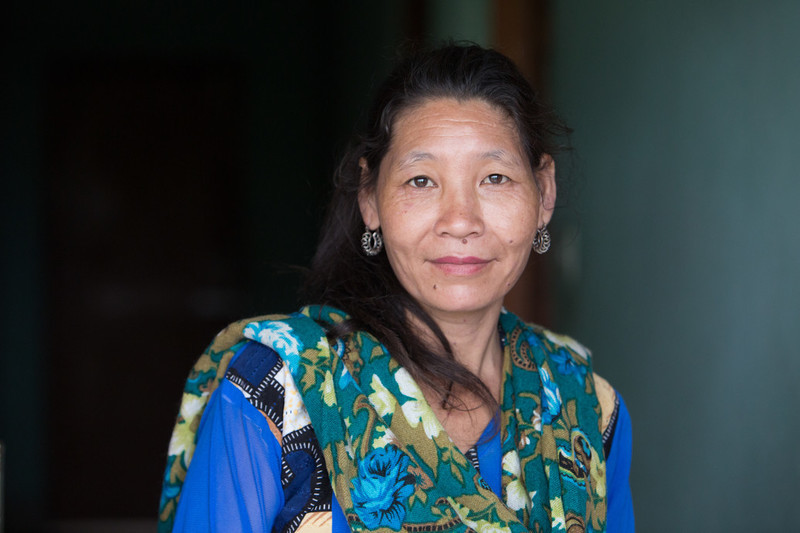
“Attitudes of younger people to HIV are not changing fast"
“When I was 14, I was trafficked to India,” says 35-year-old Lakshmi Lama. “I was made unconscious and was taken to Mumbai. When I woke up, I didn’t even know that I had been trafficked, I didn’t know where I was.” Every year, thousands of Nepali women and girls are trafficked to India, some lured with the promise of domestic work only to find themselves in brothels or working as sex slaves. The visa-free border with India means the actual number of women and girls trafficked from Nepal is likely to be much higher. The earthquake of April 2015 also led to a surge in trafficking: women and girls living in tents or temporary housing, and young orphaned children were particularly vulnerable to traffickers. “I was in Mumbai for three years,” says Lakshmi. “Then I managed to send letters and photographs to my parents and eventually they came to Mumbai and helped rescue me from that place". During her time in India, Lakshmi contracted HIV. Life after her diagnosis was tough, Lakshmi explains. “When I was diagnosed with HIV, people used to discriminate saying, “you’ve got HIV and it might transfer to us so don’t come to our home, don’t touch us,’” she says. “It’s very challenging for people living with HIV in Nepal. People really suffer.” Today, Lakshmi lives in Banepa, a busy town around 25 kilometres east of Kathmandu. Things began to improve for her, she says, when she started attending HIV awareness classes run by Family Planning Association of Nepal (FPAN). Eventually she herself trained as an FPAN peer educator, and she now works hard visiting communities in Kavre, raising awareness about HIV prevention and treatment, and bringing people together to tackle stigma around the virus. The government needs to do far more to tackle HIV stigma in Nepal, particularly at village level, Lakshmi says, “Attitudes of younger people to HIV are not changing fast. People still say to me: ‘you have HIV, you may die soon’. There is so much stigma and discrimination in this community.” Stories Read more stories about our work with people living with HIV
Pagination
- Previous page
- Page 7
- Next page







